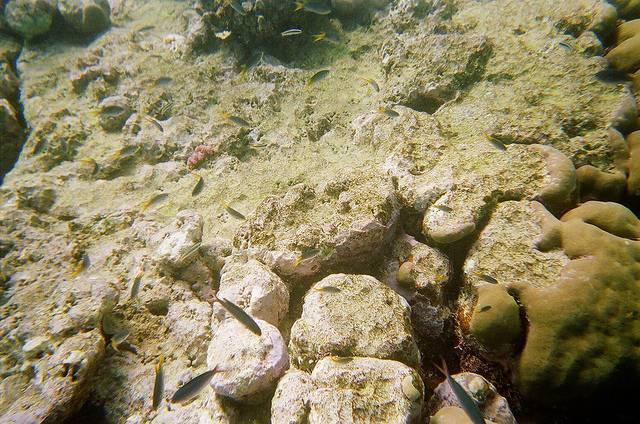
It's never a good sign when economists have to put a dollar sign on an ecological landmark to determine its importance.
But that's just what happened when Deloitte Access Economics was asked to take hard look at the Great Barrier Reef value in dollars, cents and irreplaceable industries.
What it came up with pretty much confirmed the government of Australia's assertion that the reef, was, well, irreplaceable: A dollar value that sounds more like that of a nation's yearly gross domestic product.
In fact, at $56 billion the value of the Great Barrier Reef tops the projected GDP (for 2017) of the world's smallest 112 countries, with Belarus, Libya and Lebanon coming in just under its value.
Tourism and what was creatively called "indirect or non-use" value,(meaning the economic value of it purely existing as a brand to people who know of it but haven't visited) made up the bulk of its assigned value. Things like scuba-diving tourism and the economic significance to the Australian economy, were a smaller, though significant part of the tally.
Of course, what wasn't built into the estimate was the ecological contributions to the earth's heath: the benefits that the ocean derives from the largest coral reef system in the world. Providing habitat for fish and marine species, regulating carbon dioxide and nitrogen in the ocean and helping to maintain marine biodiversity are still benefits that researchers have yet to estimate for our environment.
So, is putting a financial value on our most precious ecological resources along the lines of tourism, day trips and national economies going to keep them safe?
Will it ensure that the last third of the Barrier Reef that hasn't been bleached from warming water currents off the coast of Queensland will be protected?
Any time we attach a dollar figure to irreplaceable ecology we run the risk of overlooking the obvious: that tourism, agribusiness, supply chains or national economies can eventually become the gauge for how well we protect them. There's no better example of that thinking these days than the Amazon, where battles continue to be fought over the commercial way nations ensure their economic resilience and the rest of the planet wrestles with the loss of the trees and species we need to fight climate change.
Still, the study was fairly exhaustive. The six-month-long research was paid for by the Great Barrier Reef Foundation and included surveys of 1,500 people in 10 countries. Some 60 percent of those surveyed said they would gladly pay to keep the reef healthy and alive. The survey didn't determine how that would be done, or how scientists, who have already been struggling to find ways to rehabilitate coral habitats affected by global warming, would do so.
So yes, in some cases there may be actually be benefit to framing our most irreplaceable ecological infrastructures in economic terms. People understand size, and they understand loss.
"At $56 billion, the reef is valued at more than 12 Sydney Opera Houses," explained the Foundation's director, Steve Sargent when he tried to sum up what the World Heritage site meant to "Brand Australia."
It's a value that the rest of the world may not quite get when they try to understand how $56 billion becomes the sum-total value of the world's greatest "rainforests of the sea."
Instead, they may find former vice president and environmentalist Al Gore's summation more helpful:
"Any failure to protect this indispensable natural resource would have profound impacts not only to Australia but around the world."
Succinctly said.
Flickr images: Kyle Taylor; Jorge Lascar
Jan Lee is a former news editor and award-winning editorial writer whose non-fiction and fiction have been published in the U.S., Canada, Mexico, the U.K. and Australia. Her articles and posts can be found on TriplePundit, JustMeans, and her blog, The Multicultural Jew, as well as other publications. She currently splits her residence between the city of Vancouver, British Columbia and the rural farmlands of Idaho.














